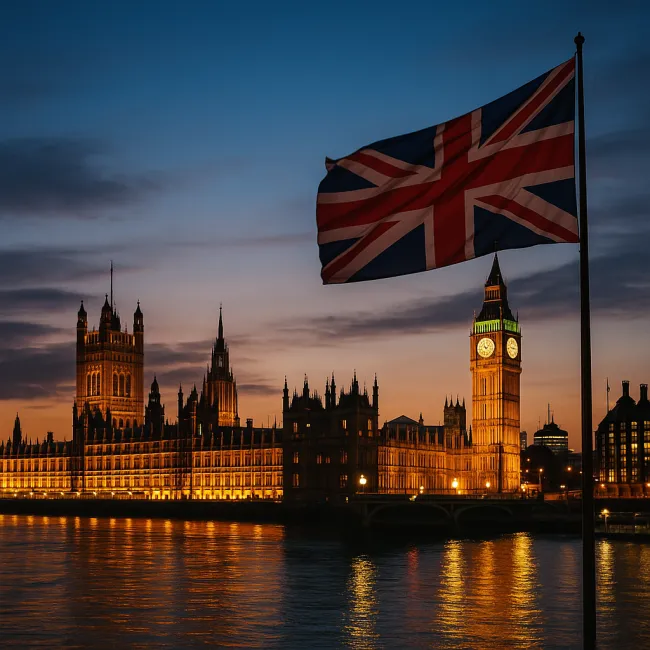
Reform UK has become the most talked about movement in British politics. It channels a sense of frustration that runs through towns, cities, and rural communities alike; that government has become bloated, wasteful, and detached from the people it serves. Its message is clear: restore competence, restore fairness, and restore pride in Britain.
Much of what has been said about Reform has been distorted, often deliberately. To understand what the party represents, the noise must be stripped away.
Reform UK is not racist.
Racism is the belief that one race is superior or inferior to another, leading to prejudice or discrimination based on background. Reform rejects that completely. Its stance on immigration is rooted in sovereignty and fairness, not prejudice. The party argues that secure borders and lawful entry are essential to any functioning democracy. It welcomes those who come legally, work hard, and contribute to national life, whatever their race or religion.
Its objection is not to diversity, but to disorder: a system that rewards those who break the rules and disadvantages those who follow them. Reform also believes equality should mean exactly that, equality of opportunity for everyone, not preferential treatment based on identity categories. It challenges the divisive excesses of so-called diversity, equity and inclusion programmes that exclude people from jobs or opportunities because they are the “wrong” demographic. In Reform’s view, fairness applies to everyone, including the indigenous white working class who have too often been ignored or talked down to.
The party also believes integration matters. Those who make Britain their home should feel part of it, respecting its culture, its freedoms, and its long-standing traditions of tolerance, decency, and free speech.
Reform UK is not against the NHS.
The health service is one of the country’s proudest achievements, but Reform says its structure is no longer fit for purpose. The party’s critics falsely claim it wants to replace the NHS with an American style insurance model. That is wrong. Reform’s position is that the NHS must remain free at the point of use, but run efficiently and transparently. It calls for less management, fewer layers of bureaucracy, and more frontline care, money going directly to doctors, nurses, and patients instead of to middle management and waste.
Reform UK is not a party of the rich, nor indifferent to the poor. It believes the welfare system should be a safety net, not a trap. People who can work should be encouraged and supported to do so, while those who genuinely cannot must receive proper help. The route out of poverty, it says, is through opportunity, not dependency, a belief rooted in dignity, not dogma.
Reform UK is not “far right”, despite repeated attempts to attach that label. The phrase “far right” gained its modern negative meaning after the Second World War, when it became linked to fascism and dictatorship. Reform has nothing to do with those ideas. It does not seek control over people’s lives or thoughts. It stands for freedom of speech, accountable government, and the rule of law. Its supporters are ordinary people who feel the state has grown too large, too unaccountable, and too complacent.
The thread that runs through every policy is fairness, the belief that the rules should apply equally, that effort should be rewarded, and that government should deliver the basics competently.
On the economy, Reform wants lower taxes funded by cutting waste, not by cutting services. It points to an overgrown civil service, duplicated agencies, and billions wasted every year. Efficiency, not austerity, is the target. Streamlining government, it says, would release funds for the NHS, policing, infrastructure, and care.
On migration, the message is clarity and control. Illegal entry should lead to detention and removal, while legal routes must be properly enforced. Reform argues that this is not cruelty but competence, following the example of countries such as Australia, where firm but fair policy restored order.
On law and order, the party calls for stronger policing, faster courts, and real consequences for offenders. Justice delayed, it says, is justice denied.
On education, Reform backs discipline, literacy, numeracy, and respect for teachers. Schools should prepare children for life, not activism.
On energy, Reform supports a balanced policy: British gas, nuclear power, and renewables that offer value, not ideology that drives up bills. It wants secure domestic supply and an end to dependence on foreign imports.
In every area, Reform’s argument is that Britain has lost sight of the basics. Government should be competent, taxes fair, borders secure, and services functional. These are not extreme demands; they are what any reasonable person expects, common sense in practice.
Above all, Reform’s rise reflects a collapse in public trust after years of failure by both Labour and Conservative governments. Voters have watched promises broken, budgets wasted, and the same cycle repeat, spending, borrowing, cuts, and crisis, with no real reform of the systems causing the problems. The NHS remains unreformed, welfare dependency grows, and migration pressures mount while living standards stagnate. People are tired of excuses.
Reform UK’s challenge to the establishment is direct: if Britain is to thrive, it must reward contribution, enforce its laws, and trust its people more than its bureaucracies. It must break the cycle of managed decline created by the two old parties.
Millions now share that view. They no longer want slogans; they want delivery. And that, stripped of distortion and labels, is what Reform UK stands for: competence, fairness, and belief in a country that works for everyone who plays by the rules.